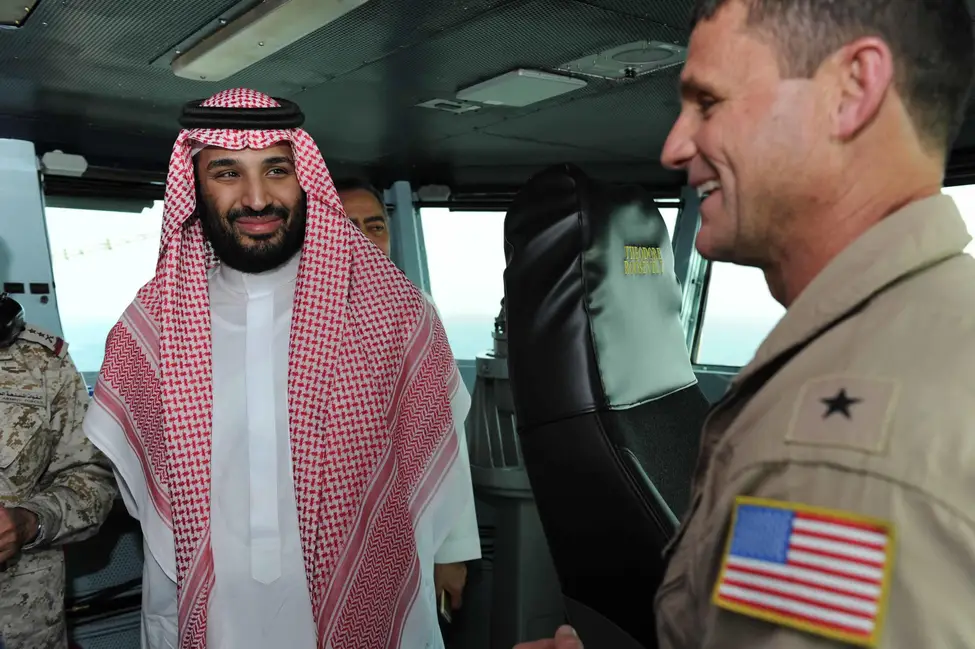Saudi Arabia’s ambitious vision for the future relies heavily on its $1 trillion *Trump* bet, a strategic maneuver that aims to reshape the Kingdom’s economic landscape. By investing in U.S. businesses and forging strong ties with the Trump administration, Saudi Arabia seeks to harness potential *returns* that go beyond mere financial gain. This partnership is designed to not only boost the Saudi economy but also increase the Kingdom’s influence on the global stage.
One of the most appealing aspects of Saudi Arabia’s investment is the potential for *returns* from various sectors, including technology, tourism, and energy. The *Trump* administration’s focus on deregulation and infrastructure development aligns well with Saudi Arabia’s goals, creating a fertile ground for joint ventures. However, while the forecast for *returns* is promising, Saudi Arabia must also navigate the complexities of this relationship, ensuring that both parties align on mutual interests.
Furthermore, the potential gains from Saudi Arabia’s $1 trillion *Trump* bet are not just financial; they also encompass strategic alliances that could bolster security and stability in the Gulf region. A successful partnership could serve as a model for future international collaborations, showcasing how investment decisions can yield significant geopolitical influence.
In the face of potential risks and challenges, including fluctuating oil prices and political instability, Saudi Arabia appears committed to its *Trump* investment strategy. As the Kingdom positions itself as a key player in global economics, its relationship with *Trump* may very well define its trajectory moving forward.
Overall, Saudi Arabia’s innovative approach, sparked by its monumental $1 trillion bet, could potentially lead to a new era of prosperity and influence, contingent on the successful implementation of its strategies in collaboration with the *Trump* administration.
Saudi Arabia’s Strategic Alliance With Trump: A Historical Perspective
The strategic alliance between Saudi Arabia and former President Trump can be traced back to a series of pivotal moments in history, reflecting the intricate dance of geopolitics and economics. This partnership was not merely born out of necessity but was cultivated through mutual interests that evolved over time. Saudi Arabia’s significant investments in the U.S. and its decision to align with Trump were influenced by a multitude of factors, including the shared goal of regional stability and economic growth.
During his presidency, Trump embraced a pro-Saudi stance, which was widely acknowledged as a cornerstone of the relations between the two. The $1 trillion bet on the Saudi economic vision revealed the high stakes involved. This partnership provided Saudi Arabia a platform to enhance its global economic footprint while leveraging Trump’s administration for favorable trade agreements and military support.
Moreover, the historical context of this alliance shows that it was not only about resource extraction or military might, but also about Saudi Arabia’s ambition to diversify its economy beyond oil dependency. Trump’s policies encouraged foreign investments, making the U.S. a favorable partner in these endeavors. Hence, the alliance was beneficial, offering significant returns that could transform Saudi Arabia’s economic landscape.
Throughout their collaboration, Saudi Arabia and Trump navigated complex social and political landscapes, each eager to extract maximum value from the partnership.
Examining Economic Impacts: How Saudi Arabia Benefits
Saudi Arabia has strategically positioned itself as a major player in global economics, particularly through its deep financial engagements. One standout element of this strategy is the $1 Trillion Trump Bet. This ambitious investment has been viewed as a potential goldmine that could yield significant returns for the kingdom. By aligning its interests with the Trump administration, Saudi Arabia has opened doors to unique opportunities that can help elevate its economic landscape.
Through this alliance, oil prices, infrastructure developments, and various investments in technology have all seen an increase due to the favorable policies supported by the Trump regime. Such policies not only benefit Saudi Arabia economically but also create a conducive environment for foreign investments. The transformational moves undertaken by the Saudi government underline the benefits gained through its historical partnership with Trump.
Moreover, this partnership has provided Saudi Arabia with a platform to diversify its economy, traditionally overly reliant on oil. Investments in renewable energy and technology sectors have been bolstered, significantly enhancing the country’s economic impacts on the global stage. By meticulously assessing these benefits, it becomes clear that Saudi Arabia’s economic trajectory is on a promising upward trend, showcasing the effectiveness of the Saudi-Trump alliance.
Potential Risks And Challenges In The Saudi Arabia-Trump Partnership
The partnership between Saudi Arabia and Trump represents a significant investment strategy, centered around the potential for economic growth and geopolitical influence. However, with an estimated investment of $1 trillion, this collaboration is not without its potential risks and challenges. One of the primary concerns is the volatility associated with the political landscape in the United States. Changes in administration can lead to shifts in foreign policy, which may jeopardize the strategic interests of Saudi Arabia.
Additionally, economic fluctuations can also impact the expected returns from this massive investment. The global oil market, a cornerstone of the Saudi economy, has historically been subject to rapid changes in price due to geopolitical tensions and supply-demand dynamics. Should prices decline, the financial implications for Saudi Arabia could be significant, casting doubt on their enormous bet on Trump and his administration.
Social and environmental criticisms accompanying the Saudi investments could also pose a reputational risk. Many global investors are increasingly scrutinizing the ethical implications of their investments, and Saudi Arabia’s track record on human rights may come under the spotlight, potentially diminishing investor confidence. Moreover, aligning closely with a controversial figure like Trump might jeopardize their relationships with other nations and international organizations, further complicating the geopolitical landscape.
While the Saudi Arabia-Trump partnership offers a promising opportunity for growth, the associated risks underscore the need for a careful evaluation of both economic and political dimensions. Stakeholders must navigate a complex web of challenges to maximize potential benefits while minimizing adverse outcomes.
Comparing Returns: Saudi Arabia Vs. Other Global Investments
In recent years, investment strategies have come under intense scrutiny as countries and corporations seek the best returns on their capital. One notable player in this arena is Saudi Arabia, which has made substantial investments, particularly in its partnership with Trump. With offers reaching up to $1 trillion, the potential returns from these investments are a topic of considerable debate among analysts. Comparatively, Saudi Arabia’s ventures in the global market have yielded varying levels of success.
When evaluating the returns on Saudi Arabian investments, particularly regarding its dealings with Trump, it is essential to consider the political, social, and economic contexts. Unlike many traditional investments that rely heavily on market fluctuations, the Saudi gamble with Trump is entwined with diplomatic relations and economic initiatives that could shape the Middle Eastern landscape. Such investments often pivot around the idea of long-term benefits rather than immediate gains, which sets them apart from more conventional global investments.
Furthermore, comparing Saudi Arabia’s strategy with other global investments brings to light the complexity of different markets. While established economies offer stable returns, emerging markets often provide higher yields at increased risks. Saudi Arabia’s substantial partnership with Trump could bring favorable returns through groundbreaking initiatives like Vision 2030, aimed at diversifying the economy and reducing dependence on oil revenues.
However, the relationship is not devoid of complexities. While the promise of the U.S.-Saudi partnership appears lucrative, fluctuating political climates and economic uncertainties can pose risks not typically seen in other forms of investment. As global investors consider their strategies, understanding the nuances of Saudi Arabia’s $1 trillion bet on Trump will be critical for evaluating its potential returns against other international opportunities.





